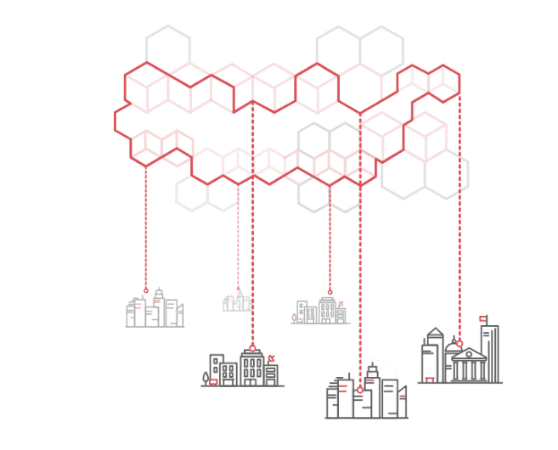
“Global supply chains rely on a massive volume of information that must be managed and matched in real-time. The future of efficient and compliant global trade relies on the better flow of information across the value chain,” said Rob Barnes, CEO of TradeIX. “With Bolero and Marco Polo joining forces, financial institutions will be able to rely on DLT and the distributed network and platforms to meet and surpass their corporate clients’ expectations. We strongly believe that this will serve as a key competitive advantage for all members operating on the Marco Polo Network.”
The need
Until recently, processing trade finance transactions – such as letters of credit – were largely paper-based, manual, and time-consuming. Since the underlying trade flows were also slow, this did not matter too much: transactions did not impair inter-modal flows in any substantial manner.
With digitalisation the velocity of financial and informational flows are accelerating. These need better synchronisation with the velocity of the physical transactions. Blockchain, as a technology, provides the basis for improving the match between trade velocity and trade finance.
Any trade transaction consists of three layers. These consist of the:
- physical
- financial
- related information flows.
Until recently, these layers ‘operated’ separately – in multiple, diverse and silo-ed data systems. In seeking to digitise trade finance, the Bolero and the Marco Polo Network solutions work in parallel.
“It has never been more vital for businesses to ensure that they can keep at pace with the digitalisation of their trade process and interaction with their banks,” commented Andrew Raymond, CEO at Bolero. “With over 90% of world trade transported by sea, Bolero’s eBL and e-documents solutions will ultimately allow members of the Marco Polo Network to have access to actionable business intelligence via the underlying Corda blockchain. This partnership will continue to facilitate trade finance transactions on distributed ledger technology (DLT) by further automating the trade finance and supply chain’s settlement processes like never before.”
Bolero and the Galileo platform
Earlier in 2020, Bolero launched its Galileo platform. The objective was to future-proof digital trade finance services for banks, corporates, carriers, and other trade ecosystems. With a user experience powered by a single intelligent platform, Galileo seeks to deliver both functionality and seamless integration with third-party systems. In doing so this should provide end-to-end visibility to corporate clients and banks.
Adding Bolero solutions to the Marco Polo Network expands the matching options for the Network’s Payment Commitment solutions. The result will be fully customisable and available to any Network participant. The partnership between Bolero and the Marco Polo Network, therefore, aims to:
- provide an integrated trade settlement process
- enable business and banks/finance houses to increase the capacity and velocity of trade transactions while facilitating rapid decision-making.
The partnership represents a possible catalyst for further changes. It streamlines the handling and conditional release of e-documents – by using datasets with the matching functionality of the Payment Commitment Module of the Marco Polo Network. It combines the handling of digital trade data with the transfer of ownership by means of an e-BL. The member banks (of the Marco Polo Network) can further digitise their trade offerings for their corporate clients in the quest to:
- increase transparency and visibility
- reduce risk
- create opportunities to finance trade
- improve working capital.
Enterprise Times: what does this mean
The Marco Polo Network is a trade and working capital finance network. It is a joint undertaking between technology firms TradeIX and R3, and their corporate clients. It provides an open enterprise software platform for trade and working capital finance to banks and corporates based on a distributed, blockchain-powered solution to open up the secure exchange of data and assets between participants.
Bolero – with 20 years’ experience in trade, maritime and cloud technologies – has an established track record with digitising. Its multi-banking trade finance and electronic bills of lading solutions are in use worldwide as it facilitates the convergence of physical and financial supply chains.
By partnering with the Marco Polo network, its participants will be able to tap into Bolero’s connected digital eco-system. In essence, Marco Polo Network participants as well as Bolero customer should benefit from access to secure, trusted and fully interoperable supply chain and trade finance.


























